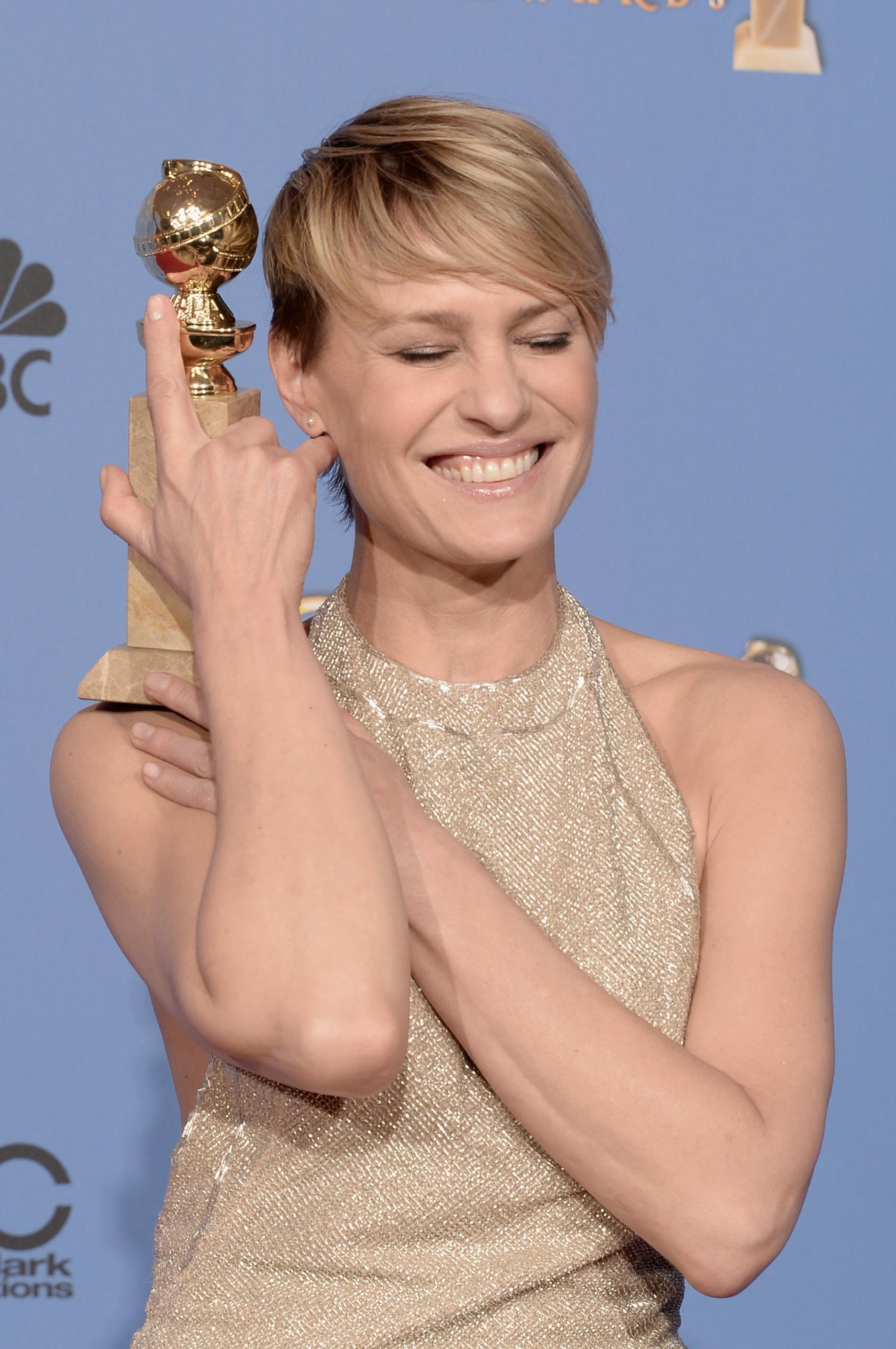Conor Friedersdorf of the Atlantic is worried about the moral barometer of feminist writers, at least those who write about the Claire Underwood storyline on House of Cards. Citing a post by Tracie Egan Morrissey at Jezebel and my own here at Slate—both of which address the feminist themes teased out in the character’s adventures—Friedersdorf worries that we are unaware that Claire is a bad person. He lists her various sins and crimes against other women: complicity with murder, getting a woman fired for no reason. And he concludes, “Women need Claire as a feminist ally like a fish needs a wood-chopper.”
It’s a compelling argument. Or would be, if I ever actually held the character up as a “feminist ally,” role model, or moral exemplar to guide the ladies in the audience on their feminist journey. (To be fair to Friedersdorf, Egan Morrissey did call Claire a “feminist warrior,” but I’ll leave her to defend herself.) But there is a big difference between arguing, as I did, that the show explored feminist themes and indulging “the impulse to celebrate Claire Underwood as a feminist, or to romanticize her Season Two persona.” Imagine if I wrote a post about her husband Frank’s storyline that said, “Frank is a character who is frequently portrayed as a scheming, power-hungry monster, but for once, his objection to the outsized role that money plays in politics is entirely sympathetic.” It’s doubtful that anyone would confuse that with upholding Frank Underwood as a role model for the moral instruction of the men in the audience. So why is that mistake so easy to make when it comes to a female character and how female audience members read her story?
There is a tendency to talk about women’s relationship to female characters in stories in the same way we talk about children who look to Big Bird for lessons in sharing. There’s a widespread assumption that women are looking to fiction for role models. That’s why there’s all this back-and-forth about whether female characters should be “likeable.” Or worse, all this discourse about “strong female characters,” a phrase that usually denotes nothing more than a character who is supposed to model perseverance and courage for ladies assumed to be in endless need of bucking up.
It would be nice if we could just get past these infantilizing assumptions about what women get out of fiction. Yes, I like the character of Claire Underwood, but not because I think she’s a feminist role model. I like her for the same reason I like Don Draper, philandering misogynist. Or Macbeth, murderous traitor. These characters entertain and their stories allow the audience to explore various themes and ideas beyond whether or not they’re teaching us to be good people. Fictional characters do come in different genders, but that shouldn’t affect how we watch and relate to them.
